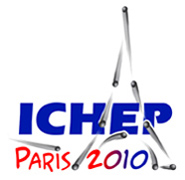Speaker
Andrew Powell
(University of Oxford)
Description
Particle identification (PID) is a fundamental requirement for LHCb and is provided by CALO, MUON and RICH sub-detectors. The Calorimeters provide identification of electrons, photons and hadrons in addition to the measurement of their energies and positions. As well as being part of the LHCb trigger, the MUON system provides identification of muons to a very high level of purity, essential for many CP-sensitive measurements that have J/Psi's in their final states. Hadron identification, in particular the ability to distinguish kaons and pions, is crucial to many LHCB analyses, particularly where the final states of interest are purely hadronic. The LHCb RICH system provides this, covering a momentum range between 1 and 100 GeV/c.
To maintain the integrity of the LHCb physics performance, it is essential to measure and monitor the particle identification efficiency and misidentification fraction over time. This can be done by using specific decays, such as Kshorts, Phi's, Lambdas, J/psi's and D*'s, for which pure samples can be isolated using only kinematic quantities, due to their unique decay topologies. This allows for clean samples of known particle types to be selected, which can then be used to calibrate and monitor the PID performance from data. The procedures for performing this will be presented, together with preliminary results from the 2009 and 2010 LHC runs.




